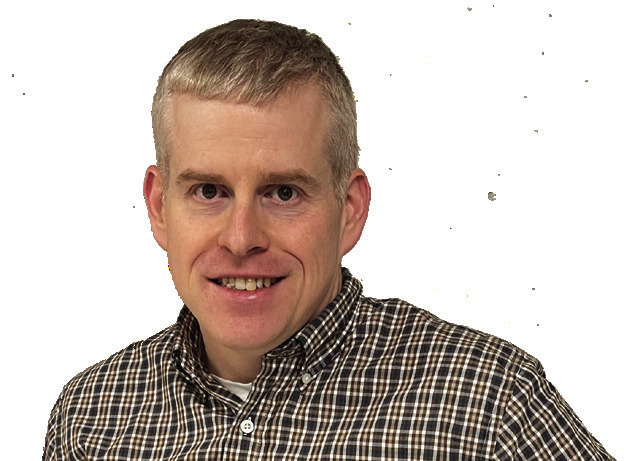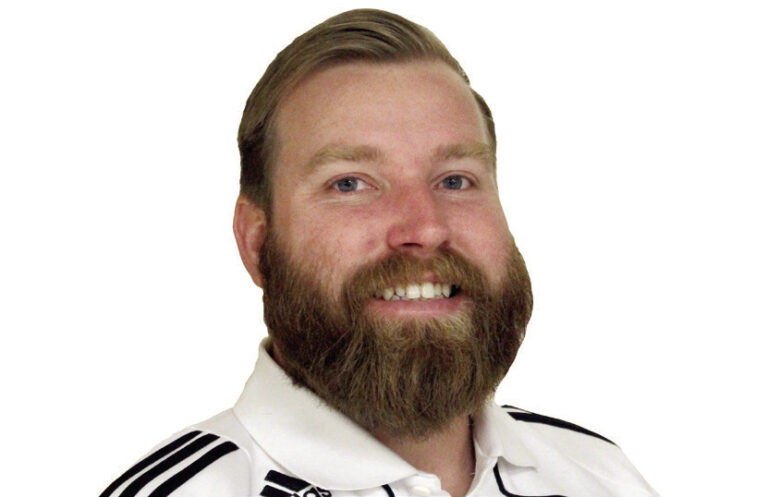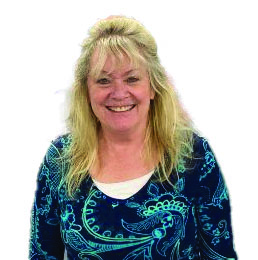Jeremiah Buntin: What’s in store for the new year

The changing over to a new year always reminds me of the book title “Seeds of Time” by H. Harold Shamel that we have in the Barry County Museum bookstore.
The title comes from a Shakespeare quote in Macbeth, “If you can look into the seeds of time and say which grain will grow and which will not, speak then to me, who neither beg nor fear your favors nor your hate,” referring to predictions of the future.
Fittingly, the book sprouts from the true account of H. Harold Shamel’s boyhood days in the Ozarks around the Washburn area in the 1890s. Harold was born June 26, 1885, in Ellsworth County, Kan., and moved with his family to the Ozarks at the age of 7. The book was first published shortly before his death in 1963.
During his life, Shamel was employed for 30 years at the Smithsonian Institution in Washington, D.C. A clipping from the Cassville paper mentioned a return visit of Shamel to the Ozarks in 1930, stating, “Harold Shamel, scientist who has been here for some time collecting specimens for a museum in Washington, D.C., will leave shortly for Cherryvale, Kan., where he will visit his mother and sister.”
Deteriorating economic conditions in Kansas in the 1890s inspired the Shamel family’s relocation to the Ozarks. They followed a fellow Ellsworth resident, newspaper man Charles Hoyt, to Barry County. Hoyt published the short-lived newspaper The Butterfield Review, according to Shamel. After camping at Butterfield a few weeks, Harold’s father, Joel Henry Shamel, was able to locate a farm near Washburn close to Greasy Creek. Their neighbors included the Potts, Egelstons, and Cargiles. Shortly after their arrival their neighbor Billy Potts died of consumption, making an indelible impression the young Harold Shamel.
Other notes of local interest for young Shamel were women who smoked pipes and chewed tobacco, prayer meetings where worshippers would shout and fall to the floor, collecting duck eggs, and hogs kept in caves.
He shares memories of attending a schoolhouse made of logs and being taught by Stella Northcutt. Northcutt was an aunt of Dr. Mary, and would later marry Gabe Potts. She died in 1906 and was buried at King Cemetery at Seligman. Other shared memories include a visit to Eureka Springs, moving from the farm at Greasy Creek to the village of Washburn, visiting with the Pease family, and attending the Old Soldiers and Settlers Reunion at Cassville.
Although the book has been available at the Barry County Museum bookstore for quite some time, it has never been a best seller; that honor has gone to Tom Koob’s book Buried by Table Rock Lake for the last few years, followed by Roaring River Heritage by Irene Horner and The First 150 Years in Cassville, Missouri by Emory Melton.
After Litho Printers in Cassville ceased operation a little while back, the museum acquired the remaining supply of the Roaring River Heritage book, which previously had been in continuous publication since 1978. In the prologue to Seeds of Time Shamel states, “The boys and girls of this generation who read this book have been given a look into the family life, the social life and the community behavior of a generation ago, that will never be lived again in America.”
Every generation has a unique place in our history and accordingly an effort must be made to catalogue and record these experiences in every generation for future generations. The Barry County Museum published 20 volumes of oral history in the Lifetimes of Memories series, including recollections from more than 90 Barry County residents in over 5,000 pages.
Recently, Mark Meadows published two volumes of his Ozark memories, Echoes from the Ozarks and Ozarks Trails and Tales. Dennis Epperly also published his school day memories in Rural Schools of the Ozarks. Back in 2006, Leon Fredrick wrote Growing Up in Monett about his childhood.
In 2015, Jimmy Lewis wrote Listening to the Jar Flies, his recollections on growing up in Wheaton and Rocky Comfort. Heno Head Jr. wrote a biography on local businessman Glen Garrett back in 2019.
Hopefully in this new year, we will resolve to collect our thoughts and spread our memories because we do not know which ones will grow into the future — and be sure to drink your Ovaltine.
Jeremiah Buntin is a historian at the Barry County Museum. He may be reached at jbuntin@barrycomuseum.org





